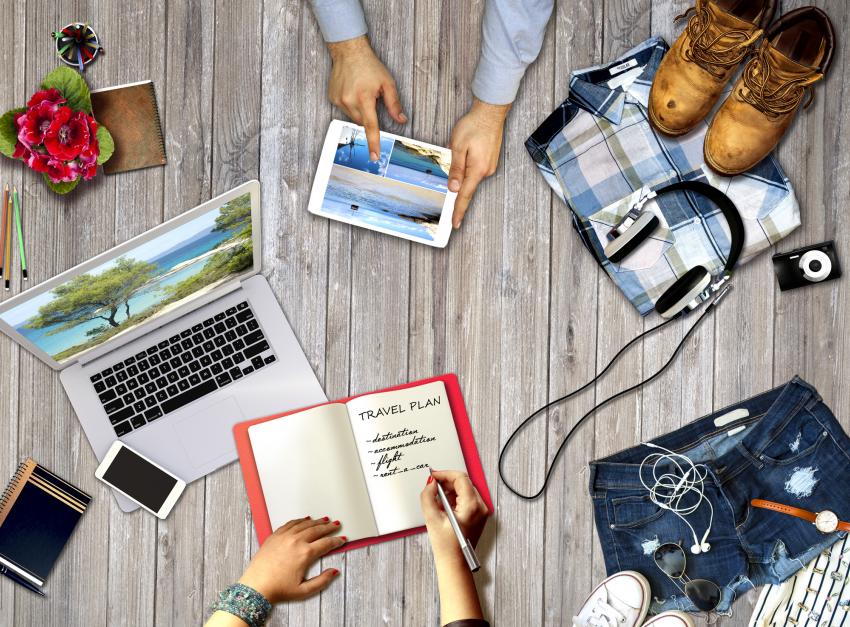
- Ali
I love travelling, it’s one of the reasons working for myself is so great. I really do get to plan my diary and take off when and where I like. When Miss H first started at a private school I was so shocked by the length of the school holidays and wondered how anyone with a ‘proper job’ would ever cope. For me working from home and being able to be there for her into her teens has been so powerful an experience and I still get to travel whenever I like.
I honestly think life is made up of memories not things. You’ll rarely remember the time you went to Bluewater to get a pair of summer sandals but you’ll remember the week on the Norfolk coast and the day the tide washed up a shoal of starfish to be thrown back in one by one. You’ll remember the funny tasting foods on your first exotic holiday and how you came to love them. You’ll often remember the jet lag! So what can you do to help make the transition from home to holiday destination as pain free as possible?
Why does jet lag still have such power over us? I guess our bodies simply weren’t made for it. Rapid time-zone hopping is something humans have been doing for a very short amount of time and we’ve not yet fully adapted to this body clock–disrupting aspect of the miracle of flight.
While jet lag can be irritating, if you keep in mind it’s simply the body’s way of telling us that we’re far away from home and our rhythms are out of sync with the local time you can view it with a slightly more sympathetic air.
So, how can you help your body cope with jet lag’s disruptive effects? Grab your earplugs, eyemask and a good book and consider the following travel advice.
Shift your schedule before you travel
Depending how hard you are hit by the timezone clash, a week or two before you go, you may want to start to adjust your bedtime and rising time by a few hours to start closing the time-zone gap. If you’re headed west to the USA or beyond and hopping more than three time zones, you may want to try delaying bedtime and rising time. Likewise if you’re heading back from the USA or Caribbean to Europe try moving bedtime and rising time up by an hour or two over the course of several days prior to departure.
I also try to eat lots of small meals rather than big heavy meals before I travel. This helps to support your digestion and elimination. Many people swear by a 12 to 16 hour fast before breakfast in the new time zone you are about to arrive in but this often means not eating on board your flight.
Boost your nutrients en route.
Booting your nutrient intake before you travel is just one more reason to eat a whole foods or plant based diet. Not only can it help fend off jet lag and related digestive troubles but it can help with energy levels when you arrive. Low-fibre, carb-heavy meals tend to stress the digestive system even more, especially when you’re crossing multiple time zones. In the air, traditional comfort foods that airlines offer tend to slow the body’s ability to adjust by using up valuable energy to undertake the business of digestion and breaking down your food.
Keeping food as simple and healthy as you do on the ground, with lots of veggies, good fats, and plant based protein can really help. And if you know you’ll have trouble locating healthy food while in transit try keeping a few plant-based protein packets in your hand luggage so you can shake up an instant protein snack that’ll stave off hunger, replenish nutrients, and keep your digestion on track. My favourite is Chocolate Protein and Chocolate and Sea Salt Protein Bars.
Stay hydrated
We’re often plied with alcohol on long haul flights and while it can relax us it’s probably doing us more harm through dehydration. It’s most important to stay hydrated throughout the flight and that means ensuring you are hydrated when you board the plane as well as while you’re onboard. Try to avoid heavy drinking sessions and carbonated drinks which dehydrate faster still. Opt for water, juice and other non-carbonated soft drinks or take a rehydration drink. My favourite is the Phytosport rehydration drink which comes in handy sachets you simply add to a bottle of water. Give it a shake and you’re good to go. With a unique blend of electrolytes to support isotonic balance, it rehydrates cells to promote proper muscle function. And once I’ve arrived my 'go to' energy drink to keep me going until bed time is an Arbonne Energy Fizz Stick. Again in handy sachets which you can carry in your hand luggage these great tasting pomegranate or citrus energy drinks contribute to normal energy metabolism and reduce tiredness and fatigue.
Stick to your fitness routine and Practice self-care
Maintaining your usual exercise routine prior to travel is a great way to maintain your balance and equilibrium. It’s worth downshifting just a bit so as to prevent overtaxing the energy reserves you’ll need to tap into as your journey begins. Ensure you get great post workout recovery by taking a post workout protein and recovery shake, here’s my favourite recovery drink. I’ve found this really helps to support my energy levels with its high Vitamin B12 content and ginseng, turmeric and cayenne. And remember jet lag seems to have less impact on regular exercisers, so maintaining your fitness routine at home and away can really help.
Starting your trip in as relaxed a physical and mental state as possible is also key. No matter what age you are (and it’s proven that travel affects the over 40s harder than others) air travel is a physical stressor, so be kind to your body in the week leading up to departure. Get more rest, eat healthily and clean, get a massage, spend time in the sauna at the gym, and ramp up your mindfulness practice to prep the body for the challenges ahead.
Let the light in
Our circadian rhythms (more on this on my recent blog about sleep), aka our internal clock, affect myriad essential bodily functions, such as blood pressure, when we sleep, when we wake, when hormones (like melatonin - our happy hormone) are released, when we go to the loo and so on. So when we cross multiple time zones, our internal clock—which takes its cues from internal and external factors like light, darkness, temperature, etc.—needs time to adapt to the new location.
Avoiding blue-light-emitting/backlit electronics like your laptop, tablet, or in-flight movie screen can really help too. The brightness of these screens tricks your brain into releasing wakefulness hormones and making it tougher to sleep. Instead, read light-free old-school newspapers, books, and magazines while in transit or write a mindfulness list to keep you awake but not over stimulated.
Get up and get Moving
On long-haul flights, blood tends to pool, particularly in the legs and feet, increasing the likelihood of painful swelling and, for some people, more serious health problems like deep vein thrombosis (DVT). One of my favourite moisturisers to help with painful or swollen joints is this Detox Gelee. This cooling gel can be rubbed onto tired, achey muscles. Green algae provides lasting hydration while juniper berry fruit oil helps replenish the skin’s natural moisture barrier and aromatic lavender and tangerine peel oils promote a sense of balance and peace, thus making it perfect on board and post exercise or sunbathing once you’re there.
The best drug-free way to keep these problems at bay is to keep your circulation moving by getting up and walking around the cabin frequently, circulating your ankles and stretching at least once an hour.
Circulation is also helped by wearing lose fitting clothes that are super comfortable. If turbulence contains you to your seat then try some airplane yoga poses periodically throughout the flight to encourage healthy blood flow.
Take advantage of the low cabin pressure.
The cabin pressure is lower than what you’re used to, similar to what you’d find at the summit of a mountain, so assuming you’re not super wired from too much screen time you’ll likely fall asleep faster than you would at sea level, so make yourself comfortable. A few short naps during your flight will replenish your body and enable you to get into the correct time zone far quicker thanking sleeping pills which will leave you tired and drained.
Tune out all distractions
Wearing an eye mask, noise-canceling headphones or ear plugs to block light and noise so you can doze or meditate more easily will help too. Add a neck pillow to keep your head comfortable, and wrap yourself in a light blanket to stay cozy as your body temperature falls and rises. Wearing sunglasses can look a little eccentric (or possibly famous), but dark shades can help your body reset its response to light. Support tired, and puffy eyes with a Soothing Eye Gel, here’s my favourite. This clinically proven product helps reduce the appearance of puffiness and hydrates the eye area for smoother looking skin.
Patience is key on your return
There’s no point in wasting energy trying to fight jet lag, so be patient with your body and expect at least one day of recovery for each time zone crossed. A good way to aid recovery is to make sure you get as much day light in the mornings as possible and get back to your normal exercise routine to help reset and return your body clock to normal. Most of all enjoy your travel plans and travel safely.








